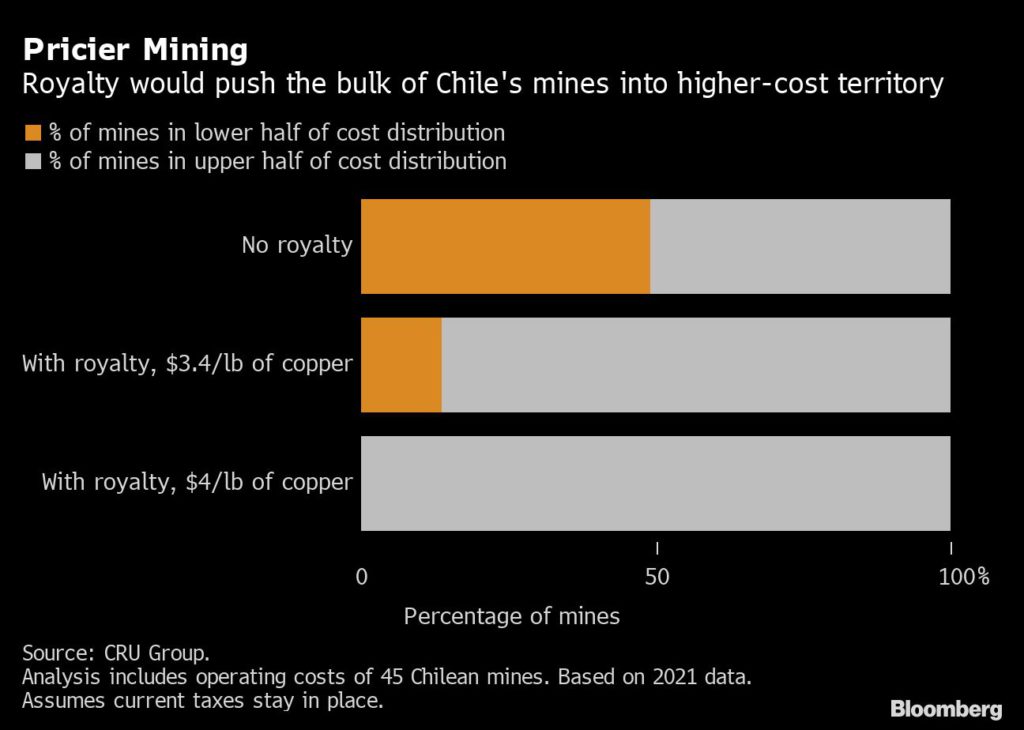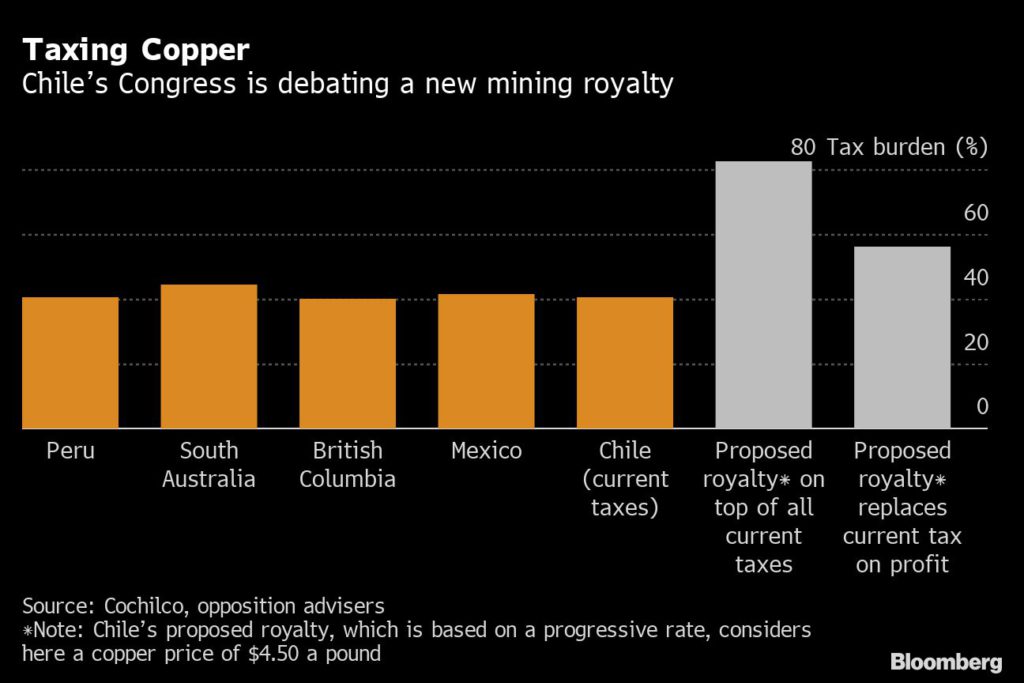A game of chicken is clouding tax debate in top copper nation

As a controversial copper windfall tax goes before Chile’s senate, debate is being stymied by huge differences in estimates for the impact on producers.
Advisers to the bill’s left-leaning proponents say it will increase the total tax burden for companies like BHP Group to 56% at current prices. But the center-right government projects 82%, making Chile by far the most onerous major copper jurisdiction and jeopardizing billions of dollars in investments.
The gap in calculations boils down to whether or not the proposed progressive tax on sales would run alongside current levies on operating profit. The bill doesn’t explicitly state that existing royalties would be removed.

Proponents acknowledge that a repeal of the current system should be included in the text. But for that to happen, the government must get on board, said Communist Party lawmaker Daniel Nunez. The ruling coalition has threatened to seek a court ban, arguing the existing tax on profit should be allowed to play out at a time of surging prices.
“Proposing a repeal without government backing would give more arguments for the ruling coalition to go to the Constitutional Court,” said Nunez, one of the bill’s most vocal advocates.
Including both systems in tax-take calculations allows the government of President Sebastian Pinera to mount a stronger case against the bill. By the same token, if the bill gets through senate in its current form, there’s no guarantee companies won’t be hit with both. That would be akin to expropriation, an industry group said.
The game of chicken is playing out as politics in the top copper-producing nation take a turn to the left, with the ruling coalition failing to secure a third of the assembly seats needed to block extreme measures in the writing of a new constitution. At stake is Chile’s ability to address lingering economic inequalities that have stoked social unrest and, on the other side, the copper industry’s ability to meet rising demand for the metal used in wiring.

Assuming the proposed royalty system replaces the existing one, companies would continue to operate profitably in Chile, Gonzalo Martner, one of the economists behind the drafting of the bill, said in an interview.
“We’re saying that the additional profits when copper is at a high value are for Chile, the owner of the resources, and not for the company that operates them,” he said.
Assuming other taxes do stay in place, the bill would squeeze margins and could hamper investments.
“For current operations, it’s not like they’re going to close or leave the country,” said Juan Esteban Fuentes, head of South America for CRU Group. “The consequences will be for upcoming projects.
(By Valentina Fuentes and Daniela Sirtori-Cortina)
{{ commodity.name }}
{{ post.title }}
{{ post.date }}




Comments